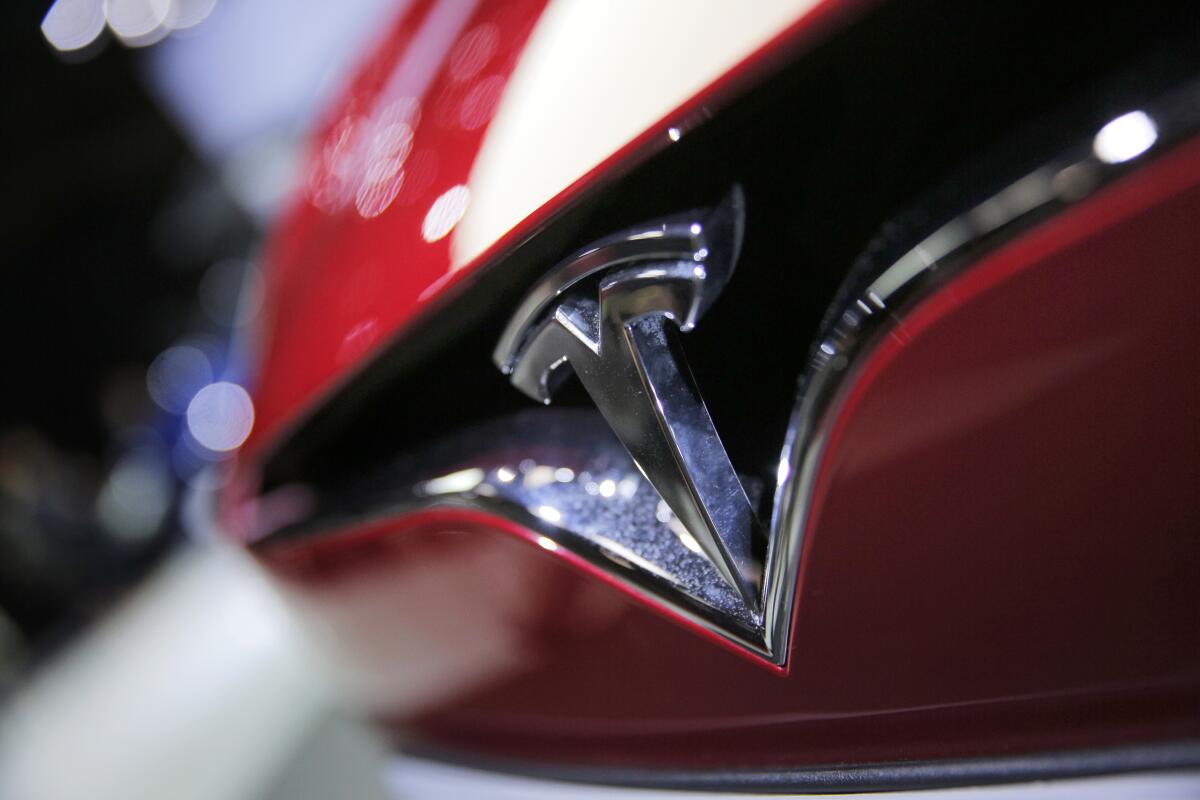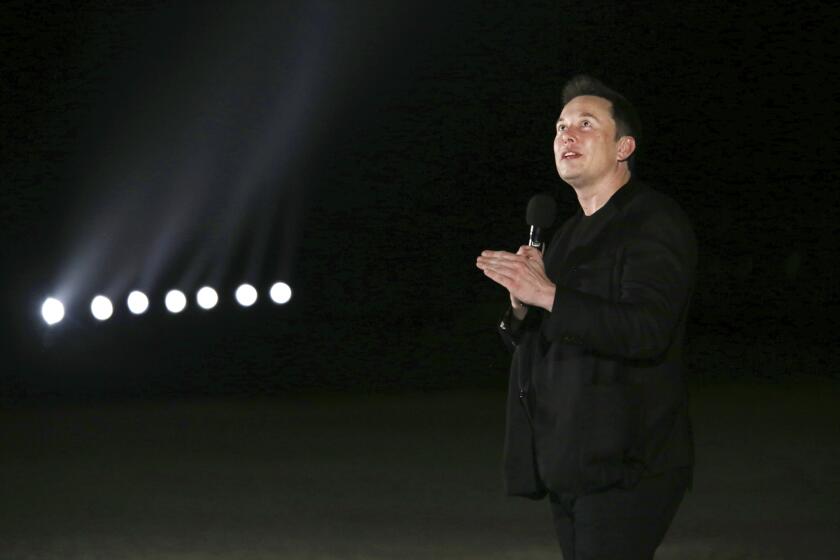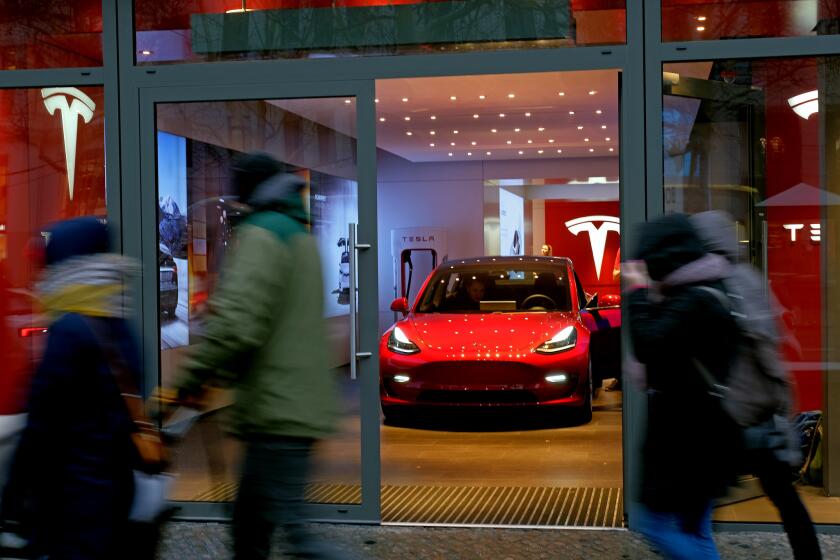Tesla surges above $780 a share on a supplier’s good news and analyst enthusiasm

Tesla Inc. shares surged 20% on Monday, adding more than $23 billion to the stock’s market value, boosted by earlier-than-expected profitable operations at its Gigafactory and a flurry of bullish reports.
The stock rose to $780, a record high closing price that’s 67% above the average analyst price target of $466.78.
Elon Musk & Co. have seen the stock climb 15 sessions out of 22 this year, adding more than $360 as the company notched one success after another. This year the company has opened its long-awaited Shanghai factory; delivered blowout quarterly results, including its fourth profitable period in six; accelerated Model Y deliveries and pledged to deliver at least 35% more vehicles than it did last year.
What’s propelling Tesla’s stock price, since its performance is so-so?
The signs of progress have spurred a rally that even global concerns over the coronavirus contagion couldn’t dent. The stock rocketed 86% in the first month of the year, pushing its market value past that of Volkswagen. The percentage surge in just the last three trading days more than exceeded the 26% gain Tesla saw all of last year.
“Last week’s earnings and guidance completed [a] ‘comeback story for the history books’ from the dark days seen last April,” wrote Wedbush analyst Dan Ives, who sees Tesla reaching $1,000 per share in his most bullish scenario. He sees “clear momentum around global EV demand inflection heading into 2020 and beyond, with Tesla leading the charge.”
On Monday, Panasonic Corp., which makes batteries for Tesla at its jointly operated battery plant in Nevada, said the business turned profitable in the period that ended Dec. 31, a full quarter ahead of its past expectations. The rapid increase in Tesla’s output helped push that business into the black, Panasonic Chief Financial Officer Hirokazu Umeda told reporters in Tokyo, declining to give specific figures.
At the same time, Tesla shored up its battery supply through a two-year contract with Chinese maker Contemporary Amperex Technology Co. that starts in July.
Also Monday, Argus analyst Bill Selesky raised his price target on Tesla to a Wall Street high of $808 from $556, reflecting revenue growth from the legacy Model S and Model X cars, as well as strong demand for the new Model 3, which accounted for more than 80% of fourth-quarter production.
“Despite past production delays, parts shortages, labor cost overruns, and other difficulties, we expect Tesla to benefit from its dominant position in the electric vehicle industry and to improve performance in 2020 and beyond,” the analyst wrote in a note to clients. Selesky reiterated a buy rating.
Ardent Tesla bull Catherine Wood of ARK Investment Management said in an interview with Bloomberg over the weekend that the stock was still “incredibly undervalued.” According to ARK’s latest note, published on Jan. 31, its 2024 expected value per share for Tesla is $7,000.
As work begins on a Tesla factory in Germany, Elon Musk is taking his fight for the future of transport to the heartland of the combustion engine.
And Baillie Gifford & Co., Tesla’s biggest shareholder after Musk, increased its stake in the company, according to a regulatory filing earlier Monday. Baillie Gifford now holds a 7.67% stake in the company, up from 7.46% previously.
After kicking off 2019 on unsure footing, with doubts about demand and profitability swirling and weighing on the shares, Tesla’s stock bounced back in the second half of the year and has taken off over the last few months, as the company posted profits for both the third and fourth quarters, deliveries impressed investors and the China factory came online faster than expected.
Tesla’s market capitalization is now hovering at $140.6 billion, dwarfing that of legacy carmakers such as General Motors Co., Ford Motor Co. and even Volkswagen’s $82 billion. It’s now the second-largest carmaker in the world, behind just Toyota Motor Corp., valued at about $227 billion.
Taking the Nasdaq 100 stock index as a guide, which trades at an average price-to-earnings multiple of 28, justifying Tesla’s market valuation would require an annual profit of about $4.9 billion. Last week, the company reported an adjusted net loss of about $744 million for 2019, according to Bloomberg data. Although analysts do expect the company to turn a profit this year, they’re anticipating about $1.42 billion in net income.







